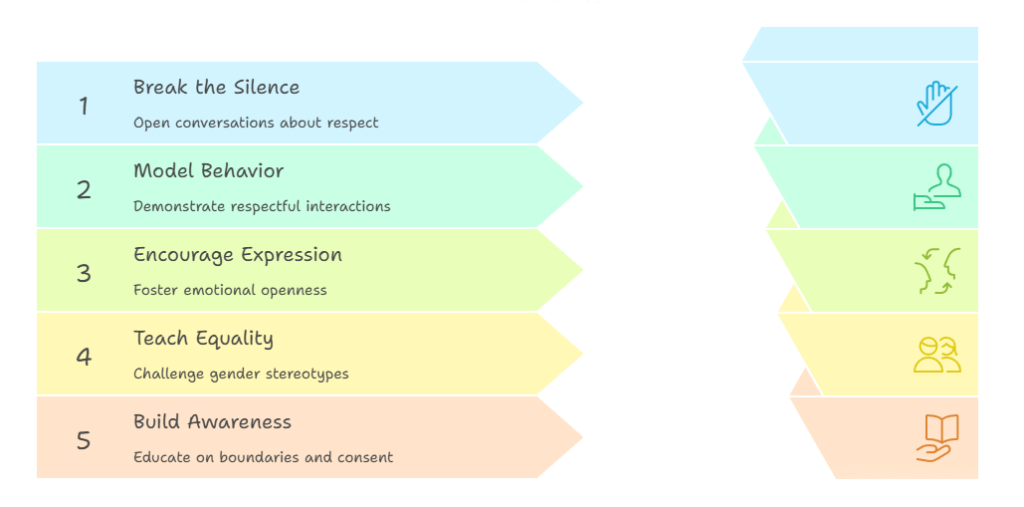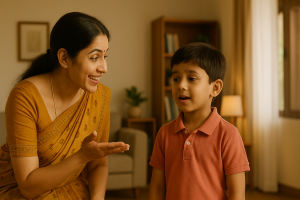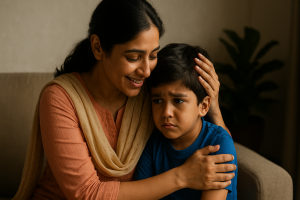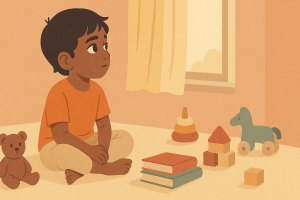Domestic violence is more common in India than many would like to admit. Too often, children grow up watching their parents fight, hearing raised voices, or witnessing aggression inside the very place that should be their safe space – their home.
The Silent Impact of Domestic Violence on Children
Emotional Scars That Last a Lifetime
Children who grow up in violent homes often carry invisible wounds – fear, anxiety, and even depression. These scars can follow them well into adulthood.
Normalizing Violence
When kids repeatedly see violence, they may think it’s a normal way to solve problems. This makes them more likely to accept or commit violence in their own relationships.
The Cycle of Abuse
Studies show that children exposed to domestic violence are at greater risk of repeating the cycle, either as abusers or victims. Breaking this cycle starts with what they learn at home.
Why Teaching Respect at Home Matters
Parents as Role Models
Children mirror what they see. If parents show respect and kindness, kids grow up believing that relationships should be based on empathy and care.
Healthy Conflict Resolution
Arguments are normal, but yelling, hitting, or intimidation should never be. Teaching children that problems can be solved calmly prepares them for healthier relationships.
Empowering Children with Self-Worth
A child who feels valued and respected at home will grow up with the confidence to demand respect in future relationships.
Practical Steps for Indian Parents

1. Break the Silence
Domestic violence often thrives in secrecy. Start conversations with your children about respect, kindness, and why violence is unacceptable.
2. Practice What You Preach
Show your children how conflicts can be resolved without aggression. Model equality in marriage and partnerships.
3. Encourage Emotional Expression
Let your children express their feelings. When they know it’s safe to talk, they are less likely to internalize pain or lash out.
4. Teach Gender Equality
Challenge harmful stereotypes like “boys don’t cry” or “girls must be quiet.” Raise sons and daughters equally, teaching both empathy and respect.
5. Build Awareness Early
Even at a young age, children can understand boundaries, consent, and kindness. Start small, but be consistent.
Community & School Involvement
Role of Schools in Promoting Respect
Schools can play a big role in shaping attitudes. Value-based education, empathy-building workshops, and open discussions about equality help reinforce what children learn at home.
Support from Extended Family & Community
In many Indian homes, extended family plays an important role. Relatives and community leaders should also take a stand against domestic violence and support parents in creating safe spaces.
Conclusion
Domestic violence is never OK – not for the person experiencing it, and not for the children watching silently in the background. Every act of violence teaches kids the wrong lesson.
But there’s hope. By teaching respect, modeling empathy, and creating safe, loving homes, we can raise children who refuse to accept violence as ‘normal.’ Together, Indian parents can break the cycle and build a brighter, safer future.
Disclaimer: This blog is correct as per the writer’s knowledge. This is not medical guidance. Follow as you are responsible.







